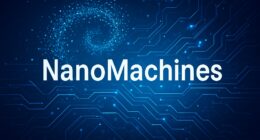Predictive AI analyzes your dating habits, profile interactions, and personal data to forecast whether you’ll get married, sometimes even before you realize it yourself. These algorithms focus on compatibility and long-term potential, reducing reliance on luck. However, ethical and privacy concerns exist around data use and algorithm accuracy. While AI can guide your relationship journey, genuine human connection remains essential. Continue exploring how this technology could transform your love life and what limitations it faces.
Key Takeaways
- AI algorithms analyze dating behaviors to predict long-term compatibility and marriage likelihood before users even realize it.
- These systems use extensive personal data, raising ethical concerns about privacy, bias, and data ownership.
- AI predictions are based on patterns in user interactions, but may oversimplify complex human emotions and relationships.
- Transparency about data use and algorithm accuracy is essential to ensure trust in AI-driven matchmaking outcomes.
- Despite technological advances, genuine human connection remains vital, with AI serving as a supportive, not definitive, tool.

Have you ever wondered if artificial intelligence could predict the success of a marriage? It’s a question that’s increasingly relevant as AI becomes woven into our dating lives. Today, algorithms analyze your dating trends—how you swipe, the profiles you view, and the messages you send—to match you with potential partners. These systems don’t just look at superficial traits; they explore patterns that suggest compatibility and long-term potential. Some platforms claim they can forecast whether two people will stay together, even before a first date. The idea is to move beyond chance and luck, using data-driven insights to guide your journey to “happily ever after.” But as these AI-powered tools grow more sophisticated, questions about AI ethics surface. Should an algorithm determine the fate of a relationship? Can it truly understand the nuances of human connection, or is it just guessing based on patterns? These are vital considerations because, while predictive AI can be impressive, it also raises concerns about privacy, bias, and the reduction of complex human emotions to data points.
As you navigate the evolving landscape of dating trends, it’s tempting to rely on AI to steer your choices. The promise is that these tools can help you avoid heartbreak by identifying signs of long-term compatibility early on. However, the algorithms aren’t perfect—they’re only as good as the data they’re trained on, which can be biased or incomplete. Some critics worry that over-reliance on AI could lead to a homogenization of relationships, where authenticity takes a backseat to algorithmic predictions. Moreover, the ethical questions aren’t just about the technology itself but also about how it’s used. Who owns the data, and how securely is it stored? Are users fully aware of how their personal information influences matchmaking decisions? These concerns highlight that, despite the impressive capabilities of predictive AI, it’s essential to approach its use thoughtfully and responsibly. Additionally, understanding the underlying data and technology, such as the role of color accuracy in visual representation, is crucial for developing trustworthy AI systems.
In the end, while AI may help identify patterns and suggest potential matches, it’s no substitute for genuine human connection. The technology can assist in making more informed choices, but it can’t replace the unpredictable, messy, and beautiful nature of real relationships. As you consider adopting these tools, remember that ethics and transparency should always guide their development and application. Predictive AI might know you’ll marry before you do, but it’s still up to you to build that relationship on trust, connection, and authenticity.
Frequently Asked Questions
How Accurate Is AI in Predicting Long-Term Marriage Success?
You’re wondering how accurate AI is in predicting long-term marriage success. While AI can analyze factors like marital compatibility and offer insights, its accuracy isn’t perfect. It uses data patterns to forecast potential outcomes, but human relationships are complex and influenced by many unpredictable elements. So, AI provides helpful guidance, but it shouldn’t replace personal judgment or emotional connection when evaluating long-term compatibility.
What Ethical Concerns Surround Using AI for Marriage Predictions?
Like Pandora’s box, using AI for marriage predictions raises serious ethical issues. You might worry about privacy concerns, as sensitive data gets analyzed, risking breaches or misuse. Bias mitigation is also vital, since algorithms can reflect societal prejudices, unfairly influencing decisions. Ensuring transparency and consent becomes essential, so you’re aware of how your data is used and protected, preventing ethical dilemmas from turning into modern-day Pandora’s box.
Can Predictive AI Account for Cultural Differences in Marriage Norms?
You wonder if predictive AI can handle cultural differences in marriage norms. It can incorporate cultural sensitivity and adapt to various marriage customs, but it needs diverse data and nuanced understanding. When designed thoughtfully, it respects cultural variations, ensuring predictions align with different traditions. However, developers must be cautious to avoid biases, ensuring AI recognizes and honors unique cultural contexts, rather than imposing a one-size-fits-all approach to marriage predictions.
How Does AI Gather Data About Personal Relationships Securely?
Imagine AI as a trusted confidant; it gathers data about your personal relationships while respecting your privacy concerns. It uses data encryption to protect sensitive information and follows strict security protocols. By anonymizing data and obtaining explicit consent, AI guarantees your privacy isn’t compromised. This way, your intimate details stay secure, allowing AI to analyze relationship patterns without risking personal exposure, much like a guardian preserving your trust.
Will AI Replace Traditional Methods of Choosing a Life Partner?
You might wonder if AI will replace traditional ways of choosing a life partner. While AI offers personalized insights, algorithm bias and privacy risks remain concerns. It may assist your decision-making, but emotional connection and human intuition still play essential roles. Ultimately, AI can complement, not fully replace, traditional methods, helping you make more informed choices while respecting your privacy and addressing biases.
Conclusion
Imagine a future where AI predicts your marriage before you even realize it’s coming. With over 60% of people now relying on dating apps, predictive algorithms are becoming more personal than ever. They analyze your behavior, preferences, and even subconscious signals to forecast life-changing decisions. It’s both exciting and a little eerie to think that technology might hold the key to your soulmate—before you even know they exist. Are we ready for love’s new frontier?
Ava combines her extensive experience in the press industry with a profound understanding of artificial intelligence to deliver news stories that are not only timely but also deeply informed by the technological undercurrents shaping our world. Her keen eye for the societal impacts of AI innovations enables Press Report to provide nuanced coverage of technology-related developments, highlighting their broader implications for readers.










